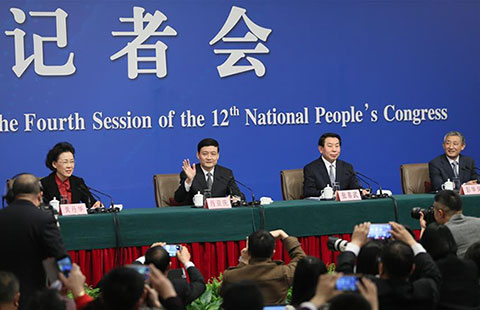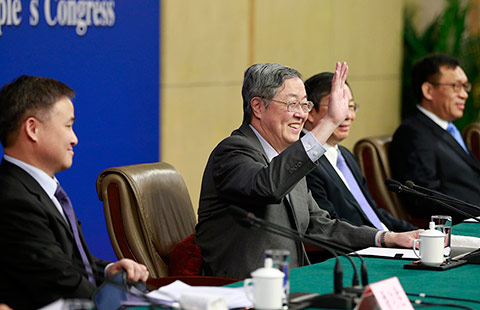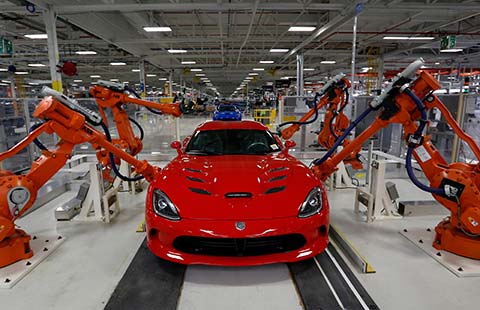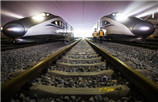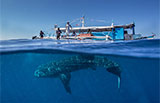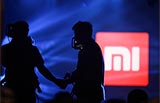New hurdle for Japan's carmakers
By John Zeng (China Daily) Updated: 2012-09-24 11:17
|
 |
Protests follow a global recall, tsunami, slipping market share in China
The dispute between China and Japan over the Diaoyu Islands this month is just the latest blow to Japanese carmakers.
As the pearl of the Japanese economy, the automobile industry will undoubtedly be the first to feel the impact.
As anti-Japan demonstrations spread, its automobiles became a target. In some cities Japanese dealerships were attacked and the normal operation of Japanese auto companies has been disturbed.
Many customers are choosing other brands due to fear of their cars being attacked, with many who pre-ordered canceling or postponing their purchase.
Japanese cars had already registered a 2 percent decline in China sales in August, allowing German carmakers to surpass them in market share for the first time.
The chief operating officer of Nissan Motor, Toshiyuki Shiga, said the poor sales performance in August was due to difficulty in implementing advertising activities, with most of its outdoor advertising cancelled.
|
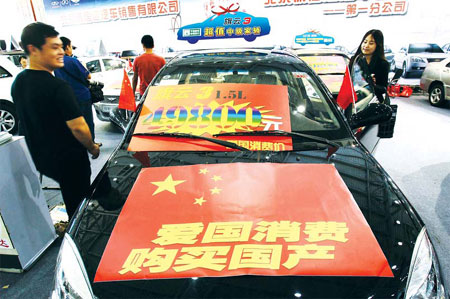 Dealership appeals to patriotism in promoting the sale of domestic-made cars. [Photo/China Daily] |
Before the end of August, Toyota cancelled all advertising in China. Other outdoor activities were cancelled at the beginning of September, surely resulting in worsening sales performance in the days to come.
Ozaki Qing, vice-president of Mazda, said "the negative factors in the first half of 2012 were the exchange rate and the Chinese market".
But can Japanese brands withstand a failure in the world's biggest auto market? The answer is a definite "no", as we can see from financial statements.
Crucial market
In 2008, Toyota suffered a loss of $4.4 billion, but its two joint ventures in China - FAW Toyota and GAC Toyota - made profit of about $1 billion during the year.
According to financial statements from Toyota, the carmaker had a 2010 profit of 209.5 billion yen (about $2.25 billion), with the Chinese market contributing $800 million to the figure. If the 30,000 imported Lexuses are added, its sales in China totaled at least $1 billion.
Last year Toyota had a net profit of about $3.5 billion, with FAW Toyota alone contributing $2.3 billion.
The situation for Honda is similar. Its 2009 global net profit was $3.18 billion, with $2.86 billion of it generated in China.
It is estimated that Honda made a profit of about $884 million in China last year, about a third of its $2.6 billion globally.
Trip to ease tension
On Saturday, the Japan-China Economy Association sent a delegation headed by Toyota Chairman Fujio Cho to visit cities including Beijing.
Delegates are scheduled to meet with Chinese government officials in a bid to ease tensions and reinforce the importance of economic ties between the two countries.
Yet even before the latest Diaoyu Islands dispute, the market share of Japanese cars was in decline.
Japanese brand car sales have been damaged by a large-scale recall from Toyota and supply shortages due to the earthquake and tsunami in Japan.
A study by JD Power China shows that the percentage of potential new car buyers surveyed that intended to buy a Japanese car dropped from 32 percent in 2009 to 24 percent in 2012.
At the same time, the proportion of respondents who said they intend to buy a European car rose from 25 percent in 2009 to 35 percent in 2012.
- CSRC says IPO reform needed but will come at the right time
- Too early to talk about exit of CSF: CSRC chief
- China to push IPO registration system gradually
- Risks in China's banking industry controllable: CBRC chairman
- China central SOE profits turn around with 4.7% rise in Jan, Feb
- PBOC governor says China capable of achieving growth target
- SASAC holds news conference on SOE reform
- Transforming China creates new opportunities
